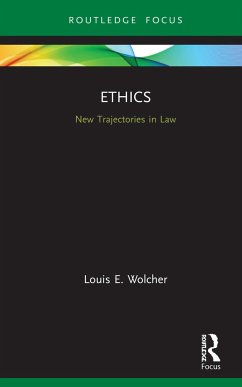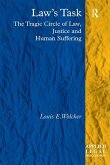This book examines ethics at the intersection of law and justice. If law and justice are concerned with collectively establishing the general terms on which the plurality called "we" share the earth as social beings, then ethics concerns the individual Self's particular moral relationship with the Other. Law, the acknowledged offspring of politics, represents the kind of might that most people accept as legitimate, at least most of the time. Justice, on the other hand, is supposed to vigilantly stand guard over law: to protect us against its biases and excesses, or, at the very least, to rise up and reproach the law whenever it permits or encourages injustice. But what if the belief that a particular legally-authorized state of affairs is "just" - a common enough feeling, especially amongst the privileged - or even "unjust" and in need of correction, were itself in need of a vigilant guardian? This book argues that ethics can and should stand guard over whatever image of justice and/or just law one happens to believe in. The book thus attempts to steer a perilous course between two looming moral hazards: ethics interpreted as the rational production of ethically correct behavior (as in Kant) and ethics interpreted as the spontaneous eruption of pre-rational compassion for the suffering of the Other, come what may (as in Levinas). In the end, the book characterizes ethical life in the law as the more-or-less constant experience of the paradoxical nature of this choice - a feeling of inescapable personal responsibility for the fate of the Other. Based on the author's well-established expertise in the area, this book will appeal to students, scholars and others with interests in legal theory and moral and political philosophy.
Hinweis: Dieser Artikel kann nur an eine deutsche Lieferadresse ausgeliefert werden.
Hinweis: Dieser Artikel kann nur an eine deutsche Lieferadresse ausgeliefert werden.








